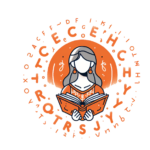
The Three Key Attributes that Summarize DevOps
Ksenia Nikolaenko | July 28th, 2023
DevOps has revolutionized the software development landscape, offering organizations the means to achieve unparalleled speed and efficiency in software delivery. To truly grasp the essence of DevOps, it is crucial to identify the key attributes that encapsulate its core principles and practices. In this insightful blog post, we will delve into the three fundamental attributes that lie at the heart of DevOps, while providing practical advice on implementing them effectively.
Attribute 1: Collaboration – The Key to Synergy
Collaboration forms the backbone of DevOps, fostering seamless cooperation between development, operations, and other relevant teams. To harness the power of collaboration, organizations should establish cross-functional teams where members work together closely, sharing their expertise and insights. Implementing collaborative tools and platforms, such as project management software and communication channels, facilitates effective communication and knowledge sharing. Embracing a culture of trust and open communication encourages team members to actively collaborate, resolve conflicts, and jointly solve problems. Regular team meetings and stand-ups further enhance collaboration by promoting transparency, alignment, and shared ownership of project outcomes.
Attribute 2: Automation – The Powerhouse of Efficiency
Automation lies at the core of DevOps, enabling organizations to streamline software development, deployment, and infrastructure management. To maximize the benefits of automation, it is essential to identify repetitive and time-consuming tasks that can be automated. Implementing robust CI/CD (Continuous Integration/Continuous Deployment) pipelines helps automate the build, testing, and deployment processes, ensuring consistent and reliable software delivery. Infrastructure-as-Code (IaC) tools, such as Terraform or Ansible, automate infrastructure provisioning and configuration, reducing manual effort and enhancing scalability. Organizations should invest in comprehensive monitoring and alerting systems to automate the detection and resolution of issues, ensuring high system availability and performance. Regularly reviewing and optimizing automated processes is key to maintaining their efficiency and effectiveness.
Attribute 3: Continuous Improvement – The Drive for Excellence
Continuous improvement is at the heart of DevOps, driving organizations to strive for excellence in their software development practices. To foster a culture of continuous improvement, organizations should encourage team members to actively seek feedback and share their insights and ideas. Conducting retrospectives after each project iteration or deployment allows teams to reflect on their performance, identify areas for improvement, and implement necessary changes. Leveraging metrics and monitoring data helps teams gain insights into system performance, user behavior, and overall quality, enabling them to make data-driven decisions for improvement. Embracing a learning mindset and providing opportunities for professional growth, such as training programs or knowledge-sharing sessions, nurtures a culture of continuous learning and upskilling.
The Synergy: Unlocking the Potential
When collaboration, automation, and continuous improvement intertwine, a powerful synergy emerges, propelling the DevOps philosophy forward. Organizations can further enhance this synergy by adopting agile methodologies, such as Scrum or Kanban, which emphasize iterative development, continuous feedback, and adaptive planning. Encouraging cross-team collaboration through shared goals and objectives fosters a sense of collective ownership and accountability. Additionally, fostering a culture of innovation by encouraging experimentation, recognizing and celebrating successes, and embracing calculated risk-taking empowers teams to push the boundaries of what’s possible.
In summary, DevOps embodies three key attributes: collaboration, automation, and continuous improvement. By embracing these attributes and implementing practical strategies, organizations can unlock the true potential of DevOps, propelling their software development endeavors towards resounding success. By fostering collaboration, streamlining processes through automation, and cultivating a culture of continuous improvement, organizations can achieve faster software delivery, elevated quality, and increased customer satisfaction.
Related posts
- Elevator Pitch: How to “Sell” Yourself in One MinuteAll of us have faced the existential question “Who am I?” when meeting a new person, or when being interviewed and asked to “Tell me about yourself”.
- IT and English: Top 5 Reasons Why an IT Professional Should Be Proficient in English I’m sure everyone has wondered: Why do I need English?
- Setronica Celebrates 25 Years of BusinessOver the past twenty-five years, Setronica has transformed from a fledgling startup into a powerhouse in the realm of information technology, fueled by our unwavering passion for innovation, our relentless pursuit of excellence, and our steadfast commitment to keeping our customers smiling.
- 5 Exceptional Programming Languages for Artificial Intelligence IntegrationChoose Rust for enterprise innovation, TypeScript for web projects, Golang for backend efficiency, Python for AI dominance, and Java for enterprise integration.
- IT Company Good SLACK Practices. How to Folster Solid Roots for a Healthy Working EnvironmentSLACK is definitely a widely used communication solution in IT companies, yet it has that extra charm and yet it is not intrusive into the day-to-day life of engineering teams.
- Unveiling the Potential of B2B Marketplaces: Key Features and Benefits for Owners, Buyers, and SellersB2B marketplaces empower owners with revenue, branding; offer buyers efficient sourcing; provide sellers market reach. Platforms ensure cost-effective, scalable, and secure operations, shaping the future of commerce.
Let’s start building something great together!
Contact us today to discuss your project and see how we can help bring your vision to life. To learn about our team and expertise, visit ‘About Us‘ webpage.

Recent Posts
- How to Efficiently Scale Your Startup’s Tech Stack for Maximum Growth
- Shine in Your Interview: 3 Dos and Don’ts to Prove Your Competence with Confidence
- Elevator Pitch: How to “Sell” Yourself in One Minute
- 9 Best Places to Find Free Datasets for Your Next Project
- 9 Key Measures to Protect Digital Assets and Ensure Data Integrity



![Exceptional_Programming_Languages_for_Artificial_Intelligence_Integration[1]](https://setronica.com/wp-content/uploads/2024/02/Exceptional_Programming_Languages_for_Artificial_Intelligence_Integration1-150x150.jpg)


